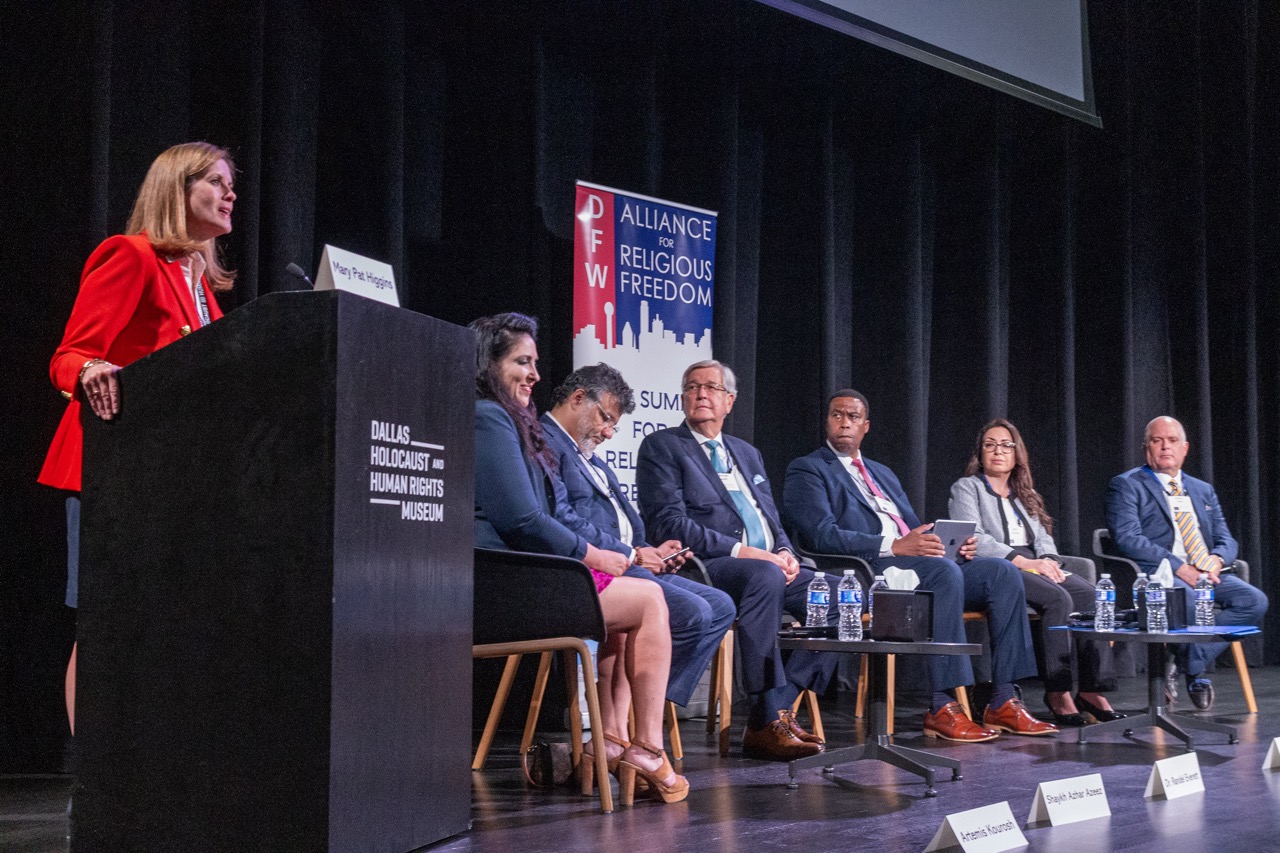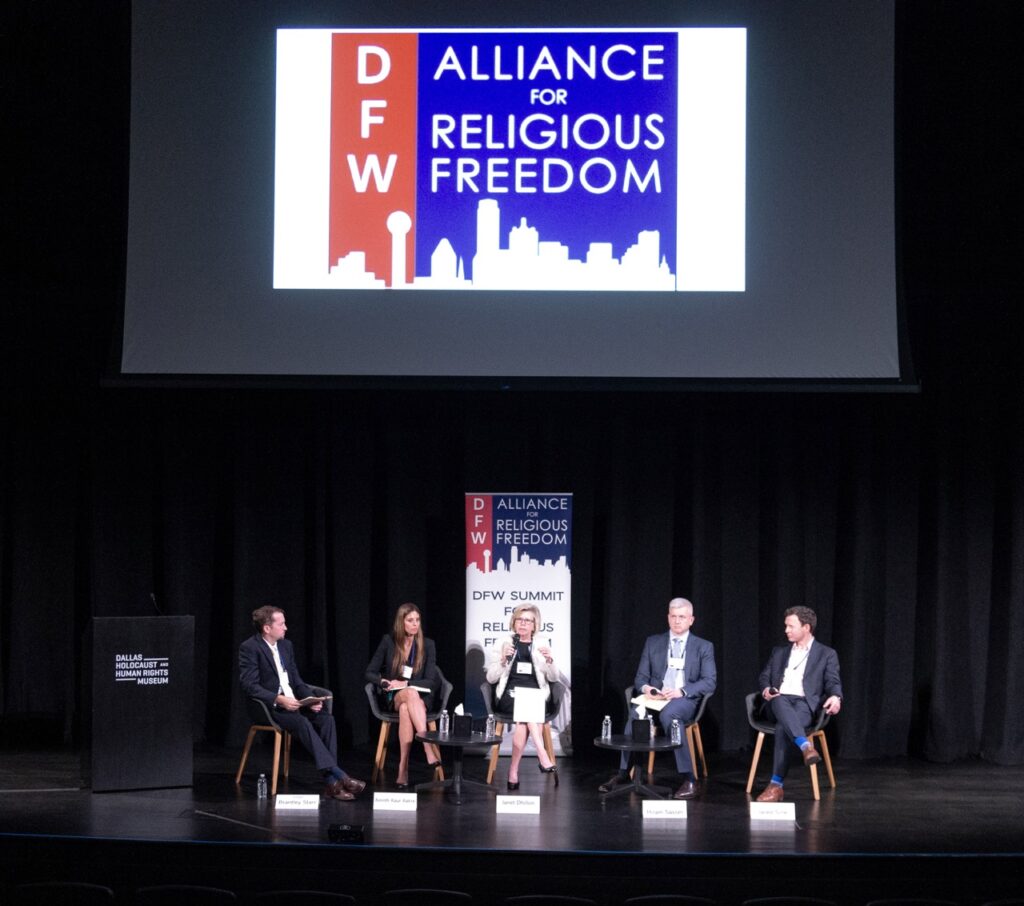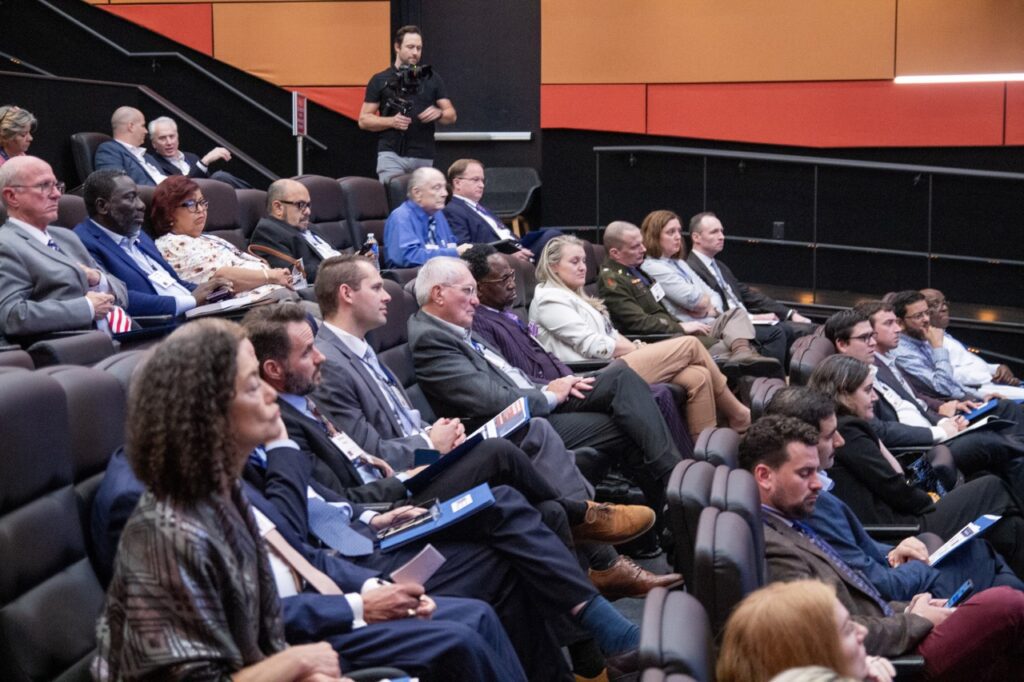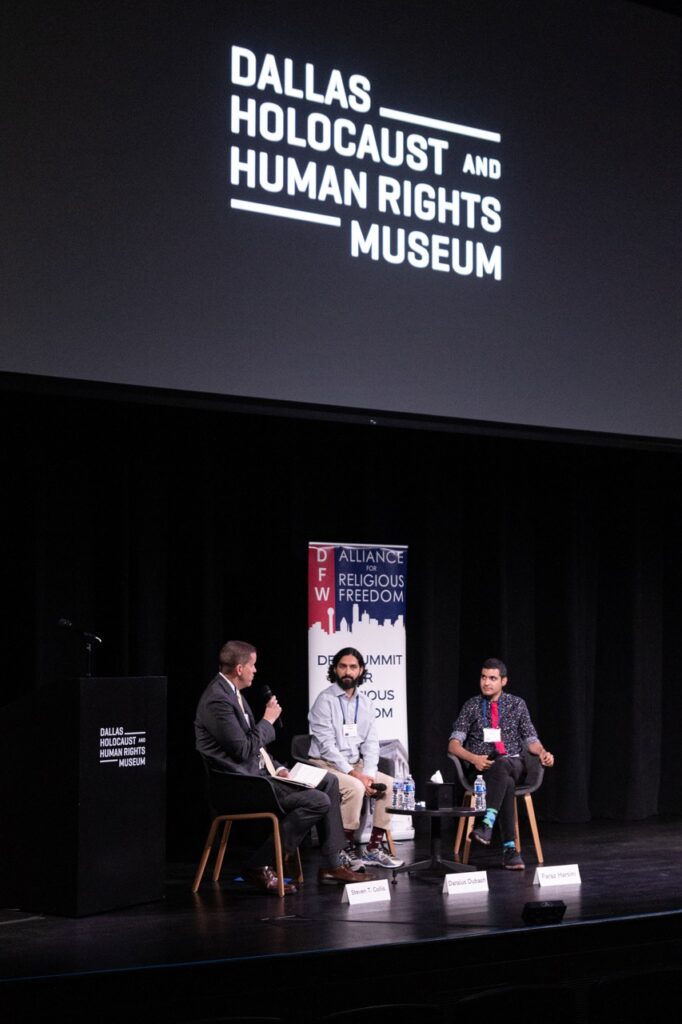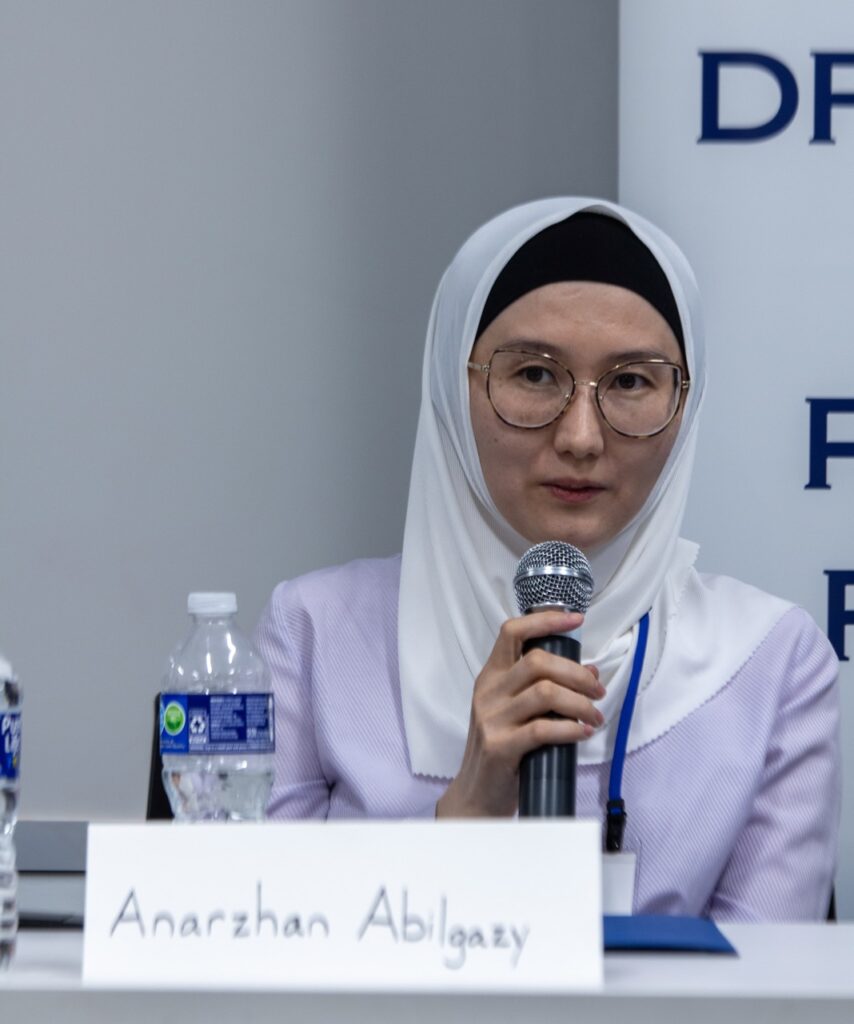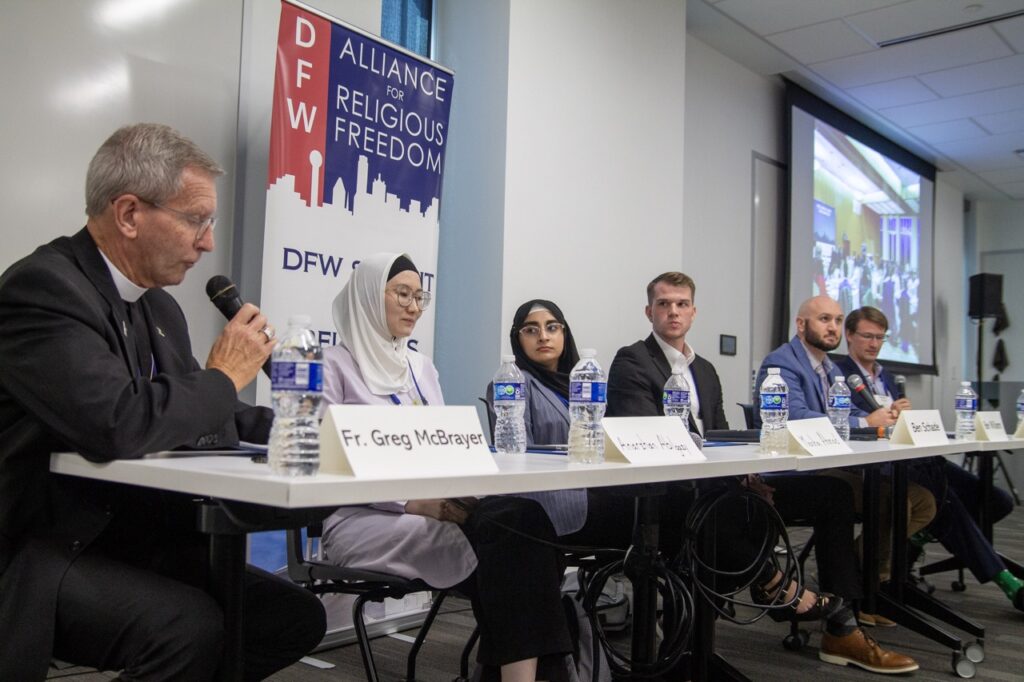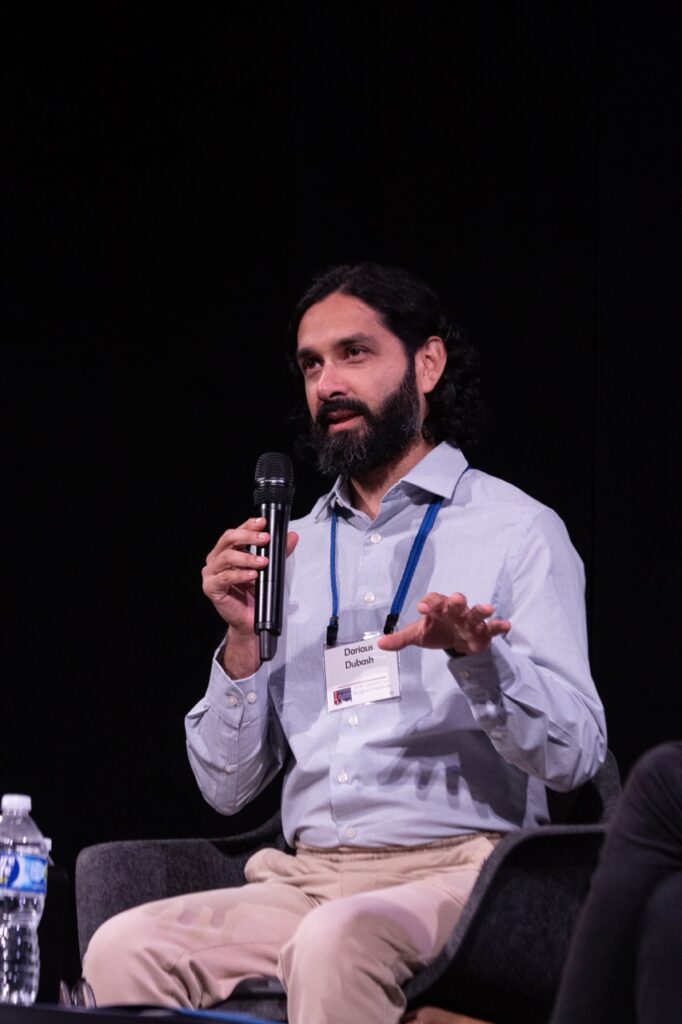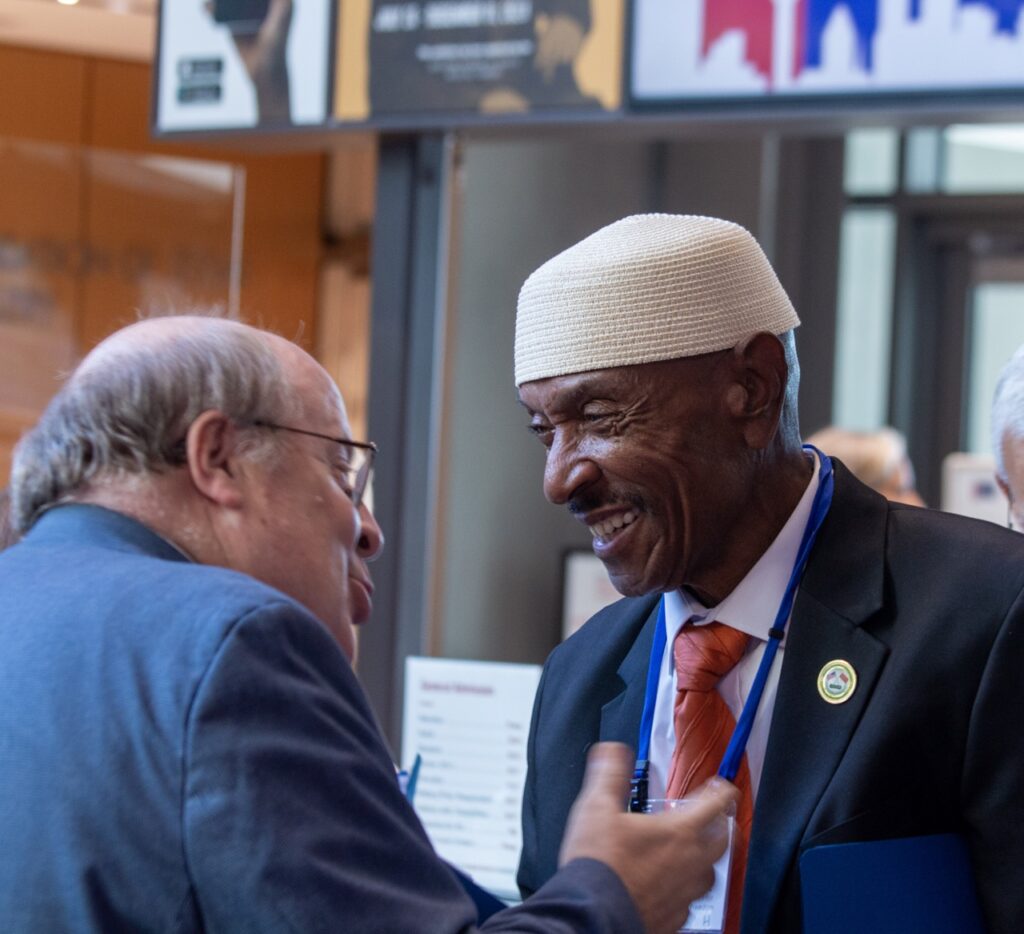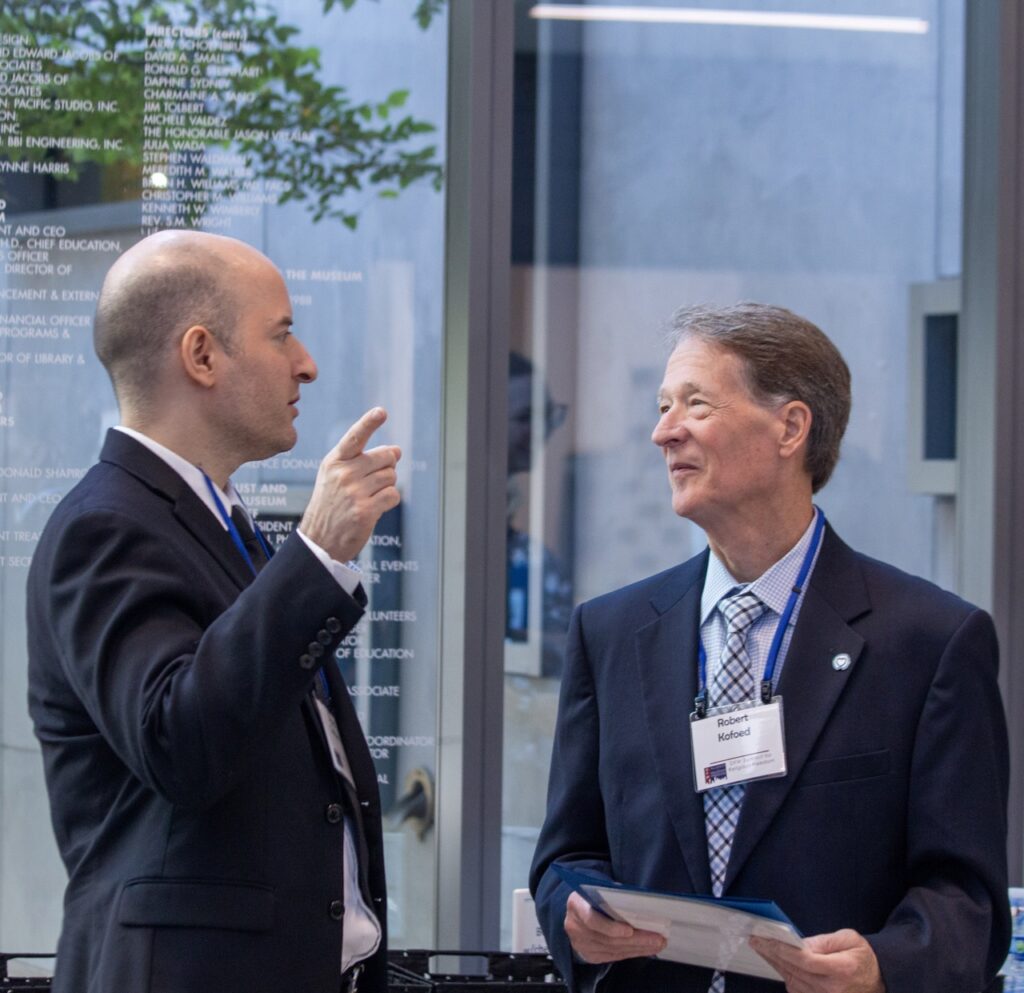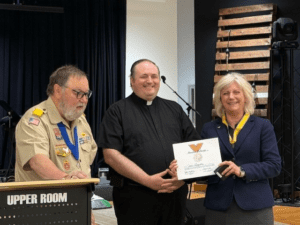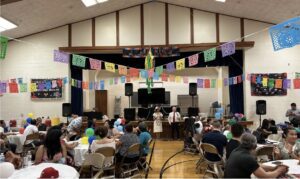Promoting Religious Freedom and Unity: A Call to Action
Recent months have witnessed distressing events reminiscent of a bygone era—bomb threats, hateful protests, and desecration of Christian churches. These occurrences are a stark reminder that the fight for religious freedom is far from over. In India, Christian churches face destruction, and even in the heart of Dallas, bomb threats and Nazi-inspired protests have emerged.
Religious Freedom Under Threat
Religious and racial prejudice and hatred are taught, according to Mary Pat Higgins, president and CEO of the Dallas Holocaust and Human Rights Museum, where the recent antisemitic activity occurred. She described religious freedom as “fundamental” and added that there is danger if one group believes that “freedom is only meant for them.” The Holocaust survivors who originated the idea for the museum felt an obligation to share what had happened and what religious persecution can do. Higgins explained, “Jews have always been the canary in the coal mine.” She added, “Supporting people in their beliefs allows us to find strength and beauty in unity and shared values.”
DFW Alliance for Religious Freedom: Bridging Faiths and Cultures
The 6th Annual Summit of the DFW Alliance for Religious Freedom occurred on October 2 at the museum. The location is deeply symbolic, according to Richard Salgado, a moderator at the event. As a trial lawyer, he devotes extensive pro bono to religious freedom causes. He emphasized that the topic should be a “big tent” with respect for human dignity, love, and inclusion for all. “Unfortunately, the language of religious liberty has been coopted by fringe groups as a dog whistle for bigotry.” Freedom is considered “important to many, but not urgent, as it should be,” Salgado concluded.
The stated objectives of the Alliance include the bringing together of faiths to find common ground through civil discourse for freedom and fairness for all; educating both the public and legal professionals about current legislation; and acting to support religious freedom and exercise in the metroplex, all with the help of Almighty God.
Founded in 2018 by Bill Benac, Melissa McKneely, Michelle Reed, and Mark Romney, the DFW Alliance brings together members of many communities locally to broaden its scope and encourage similar dialogues across the country. The logo—designed by Stacey Davies—does feature the Dallas skyline, but the goal of expanding remains central, according to Mark Romney. He added that this year’s location “brings to bear the importance of religious freedom. It’s a sacred space.” The Alliance is deeply thankful to Mary Pat Higgins for her support.
Celebrating Diversity: Stories from the Summit
The diversity of audience members and panelists was easy to observe. Shabad Priya Kaur, a Sikh priest, accented her beautiful white robes and turban with symbolic ornaments, the white signifying peace and a saffron yellow scarf for virtue. Kenneth Holland, a bishop in The Church of Jesus Christ of Latter-day Saints, runs a construction business. His crisp blue and red plaid shirt contrasted the suit and tie he wears on Sundays. Manha Ahmad, a panelist and SMU freshman, wears her black hijab by choice. Marzuq Al-jaami and Rabbi Andrew Paley both wore the head coverings of their faiths.
While diversity reflects the strength of groups, one theme of the conference was the importance of the individual. The US Constitution’s First Amendment protects religious freedom: “Congress shall make no law respecting an establishment of religion, or prohibiting the free exercise thereof…” As foundational as those words are, interpretations affect individuals, often on a one-by-one basis.
Navigating Challenges: A Personal Journey
Dr. Kamal S. Kalsi, for example, took the oath of an Army officer “to support and defend” the Constitution. He was told his traditional Sikh turban and beard would not be a problem. Eight years later, ready to enter active duty after completing his medical training, Dr. Kalsi learned he could not serve and be an observant Sikh. He decided to fight the rule. A year and a half later, he was given accommodation to his community at the expense of over half a million dollars, meaning he could wear the turban and beard.
When the Army leadership asked about the sincerity of his beliefs and the necessity of its practice, Dr. Kalsi replied: “I can give you my arm. I can give you a leg. I understand that may be required of me. I cannot give you what does not belong to me. I cannot give you my faith.” Finally, the Army did “get it,” though each Sikh must still challenge the grooming code individually. Dr. Kalsi believes normalizing faith will make accommodations unnecessary when people realize faith is “not some extremist thing.”
Similarly, the panel considering the Respect for Marriage Act of 2022 found hope in the law’s impact on faith and LGBT communities, with one panelist declaring it “almost a political miracle.” Shannon Minter, a transgender man and legal director for the National Center for Lesbian Rights, said that he does not see the Act as a compromise so much as a benefit for both sides and “one of the most positive changes ever to come out of the federal government.”
Gene Schaerr noted that the Act protects gendered marriage so that “believers are not treated like racists or bigots.” He emphasized, “The issue is not a zero-sum game. One side doesn’t have to lose for the other to win.” Earlier legislation, often called “The Utah Compromise,” offers a model that includes anti-discrimination and religious rights language. The Church of Jesus Christ of Latter-day Saints supported SB296. The law took many months of discussion because the LGBT community and faith leaders had to come to a place of trust. Once that happened, change could take place.
Building Bridges: Learning from History
The evening session of the Summit featured an interfaith panel discussing the impact of religious freedoms. Rabbi Andrew Paley of Temple Shalom in Dallas offered provocative comments: “It’s hard to believe we’re still talking about this (discrimination) in 2023. The United States, ideally, where freedom is embraced, has a long way to go. We are commanded to be holy, to seize the beauty in the world and in every person. The vision of a world filled with shalom (a Hebrew word meaning peace, harmony, wholeness, and completeness) is just beyond our reach.” He concluded with a way forward: “We must not just tolerate each other but love and embrace each other without encroaching” on others’ religious beliefs.
Maha Iskandar chairs the Interfaith Alliance of Irving; she reminded the group that Bahai’s are increasingly persecuted in Iran. Educating children in the ways of peace is essential.
Dr. Randell Everett founded 21Wilberforce “to defend the universal rights of religion, belief, and conscience for all people.” He noted that “the cores of faiths can relate to each other” though those on the outskirts cannot.
Shaykh Azhar Azeez leads Islamic Relief of USA and is active in many Muslim and interfaith groups. He alluded to the Holy Quran when he said, “I have honored the children of Adam.” He explained that we can choose: “Fear Everything And Run, or Face Everything and Rise.”
Towards a United Future: Inspiring Hope and Change
Calvin Griffin presides over congregations of The Church of Jesus Christ of Latter-day Saints in Denton. He recounted the Church’s humanitarian efforts worldwide, millions of dollars in aid and supplies. “People respond when you’re putting your money where your mouth is. We can have God’s favor when we’re doing what’s right.” His closing statement to the audience as he thanked them for coming was simple and powerful: “We love you.”
Rabbi Paley ended with practical advice. “Breaking bread with people brings down barriers. It’s impossible to talk about something in the abstract when you’re sharing a meal. It’s easy to say you care. It’s impossible to pretend to show up.”
The word “alliance” has a long history, originally a term for uniting kingdoms. It’s still a strong word with images of linking arms, standing together, protecting each other when needed. The DFW Alliance for Religious Freedom plans a 7th Summit, again bringing together faith leaders and faithful adherents, legal interpreters, and those who benefit from good governance. Plan to attend. Inspiring stories and hopeful messages will educate, uplift, and inspire.
All photos courtesy of Joe Carbone.

